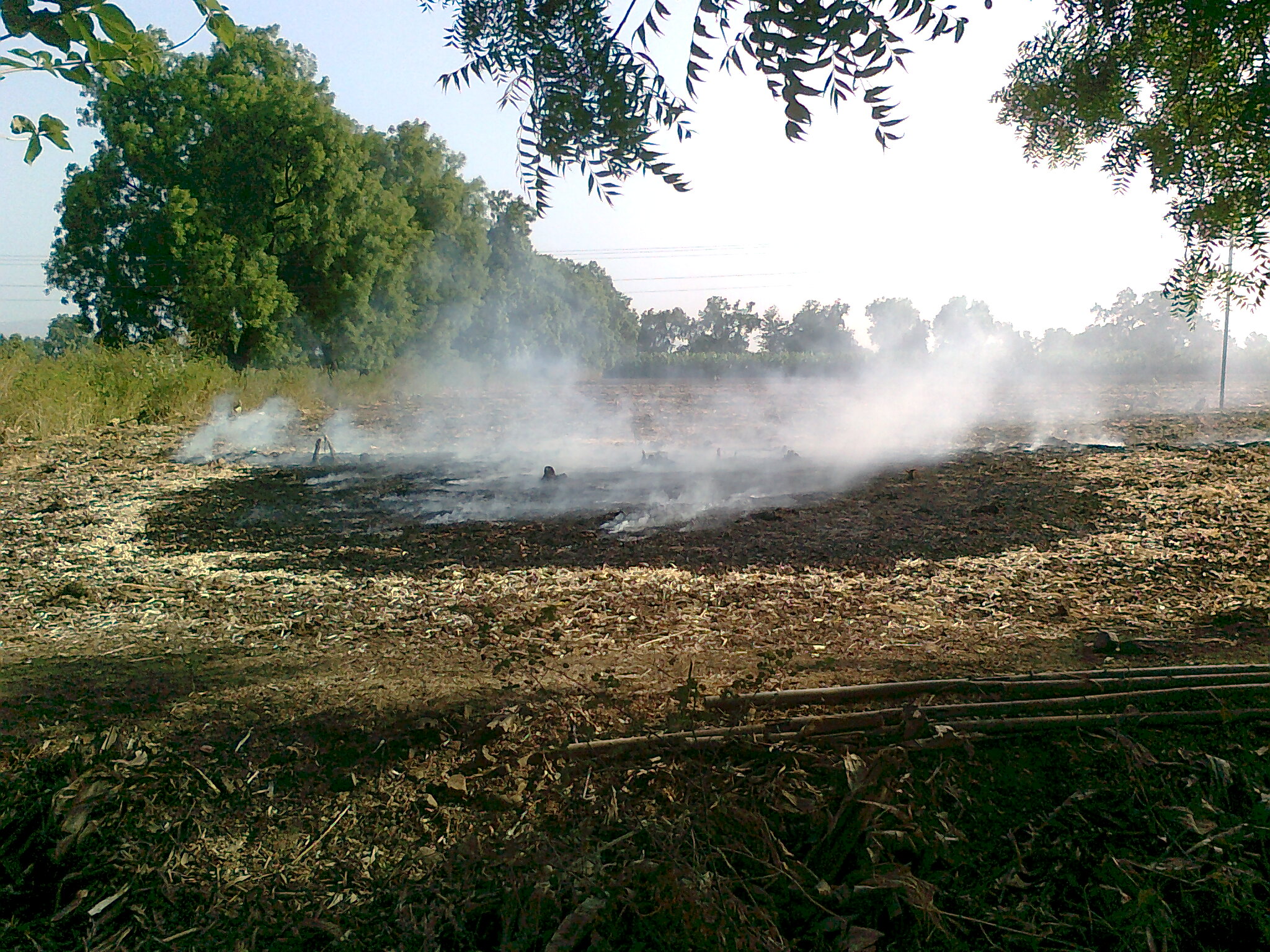Crop destruction on:
[Wikipedia]
[Google]
[Amazon]
 Crop destruction is the deliberate destruction of
Crop destruction is the deliberate destruction of
 Crop destruction is the deliberate destruction of
Crop destruction is the deliberate destruction of crops
A crop is a plant that can be grown and harvested extensively for profit or subsistence. In other words, a crop is a plant or plant product that is grown for a specific purpose such as food, fibre, or fuel.
When plants of the same species a ...
or agricultural
Agriculture encompasses crop and livestock production, aquaculture, and forestry for food and non-food products. Agriculture was a key factor in the rise of sedentary human civilization, whereby farming of domesticated species created f ...
products to render it useless for consumption or processing. It can be made by burning
Combustion, or burning, is a high-temperature exothermic redox chemical reaction between a fuel (the reductant) and an oxidant, usually atmospheric oxygen, that produces oxidized, often gaseous products, in a mixture termed as smoke. Combust ...
, grinding, dumping into water, or application of chemicals. It should not be confused with crop residue burning, which burns non-edible parts of the crop.
Related to crop destruction is alternate, low-price use of agricultural products. A large portion of the European Union wine surplus has been converted to industrial ethanol.
There can be numerous reasons for crop destruction. In a scorched-earth
A scorched-earth policy is a military strategy of destroying everything that allows an enemy military force to be able to fight a war, including the deprivation and destruction of water, food, humans, animals, plants and any kind of tools and i ...
strategy, crops and other useful materials are destroyed to prevent the enemy from gaining hold of them. The strategy of destroying the food supply of the civilian population in an area of conflict has been banned under Article 54 of Protocol I of the 1977 Geneva Conventions
upright=1.15, The original document in single pages, 1864
The Geneva Conventions are international humanitarian laws consisting of four treaties and three additional protocols that establish international legal standards for humanitarian t ...
, though it continues to be used as a weapon of war.
In government-regulated agriculture, farmers can be required to destroy crops that exceed their production quota
A production quota is a goal for the Production (economics), production of a good (economics), good. It is typically set by a government or an organization, and can be applied to an individual worker, firm, industry or country. Quotas can be set ...
. Crops can also be dumped in the street during a public protest
A protest (also called a demonstration, remonstration, or remonstrance) is a public act of objection, disapproval or dissent against political advantage. Protests can be thought of as acts of cooperation in which numerous people cooperate ...
; this custom has been common in the European Union. Also, illegal crops, such as opium
Opium (also known as poppy tears, or Lachryma papaveris) is the dried latex obtained from the seed Capsule (fruit), capsules of the opium poppy ''Papaver somniferum''. Approximately 12 percent of opium is made up of the analgesic alkaloid mor ...
and cannabis
''Cannabis'' () is a genus of flowering plants in the family Cannabaceae that is widely accepted as being indigenous to and originating from the continent of Asia. However, the number of species is disputed, with as many as three species be ...
, can be destroyed by law enforcement
Law enforcement is the activity of some members of the government or other social institutions who act in an organized manner to enforce the law by investigating, deterring, rehabilitating, or punishing people who violate the rules and norms gove ...
.
Note that this term does not apply to the burning of crops which are or can be usefully harvested by this means, such as sugar cane.
In culture
''The Grapes of Wrath
''The Grapes of Wrath'' is an American realist novel written by John Steinbeck and published in 1939. The book won the National Book Award
and Pulitzer Prize for fiction, and it was cited prominently when Steinbeck was awarded the Nobel Prize ...
'' by John Steinbeck
John Ernst Steinbeck ( ; February 27, 1902 – December 20, 1968) was an American writer. He won the 1962 Nobel Prize in Literature "for his realistic and imaginative writings, combining as they do sympathetic humor and keen social percep ...
depicts the destruction of oranges, potatoes, pig carcasses and other agricultural products during the Great Depression
The Great Depression was a severe global economic downturn from 1929 to 1939. The period was characterized by high rates of unemployment and poverty, drastic reductions in industrial production and international trade, and widespread bank and ...
.
See also
* * * * * * *References
{{agriculture-stub Crops